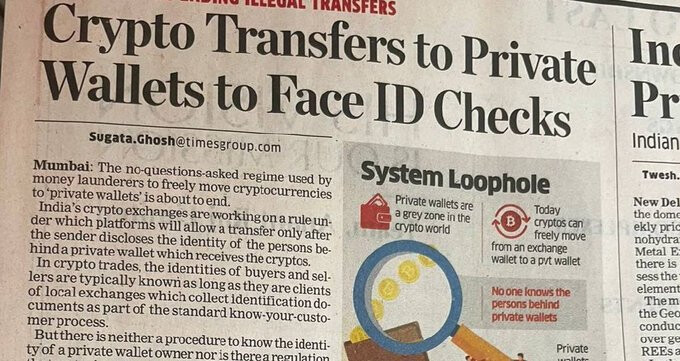
The era of unrestricted cryptocurrency transfers may be coming to an end in India. Crypto exchanges are working on a new rule that requires senders to disclose the identity of the recipients of crypto in private wallets.
Currently, the identities of buyers and sellers are known as long as they are clients of local exchanges that follow know-your-customer (KYC) procedures.
However, private wallet owners remain anonymous, allowing for potential money laundering and illicit activities.
The proposed rule aims to bring more transparency to the crypto ecosystem and prevent suspicious transactions. Exchanges would be required to collect details of the recipients’ identities, but the exact process and authentication methods are still under discussion.
Implementing this rule could offer a degree of immunity to platforms since they would have more information about the sender and receiver.
It would also align with the Financial Intelligence Unit’s guidelines on enhanced due diligence for high-risk transactions.
Transfers to private or unknown wallets have been identified as a weak link in the crypto ecosystem, potentially enabling the movement of proceeds from illicit activities across borders. PMLA rule aims to address these concerns and track transfers more effectively.
While this regulation may reduce risks, some experts suggest that linking wallet addresses to their owners’ identities could remain a challenge. However, the industry recognizes the need for clarity and is working towards implementing practical measures.
Striking a balance between regulatory measures and the technological complexities of crypto trading is crucial. Clarity and practicality are key to ensure the smooth operation of exchanges while addressing concerns around money laundering and illicit transfers.
Overall, the potential changes in India’s crypto landscape, including the new rule for disclosing recipient identities, aim to enhance transparency, strengthen anti-money laundering efforts, and mitigate risks associated with crypto transfers.
So what is your opinion, do CEX still have a future in crypto?
cc:@getkoinx